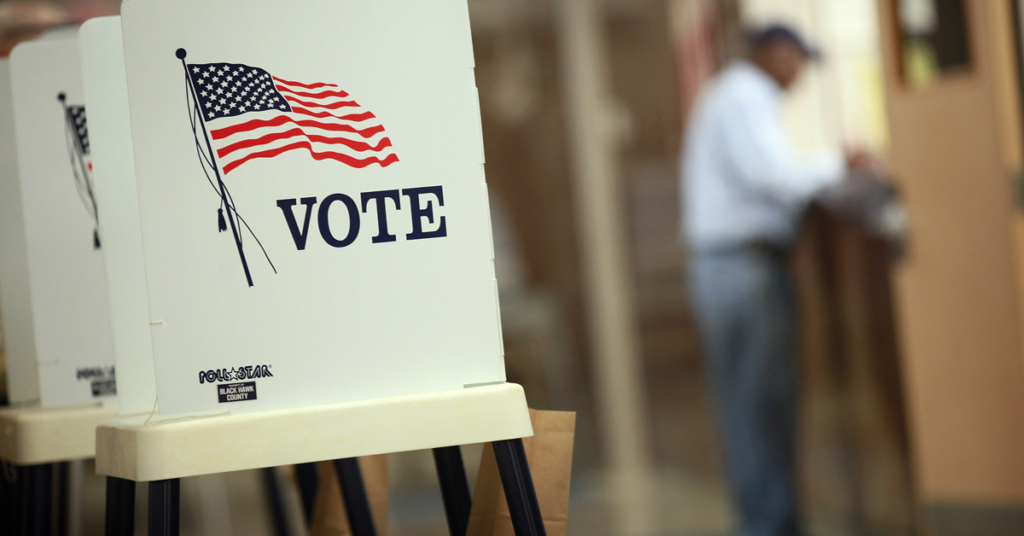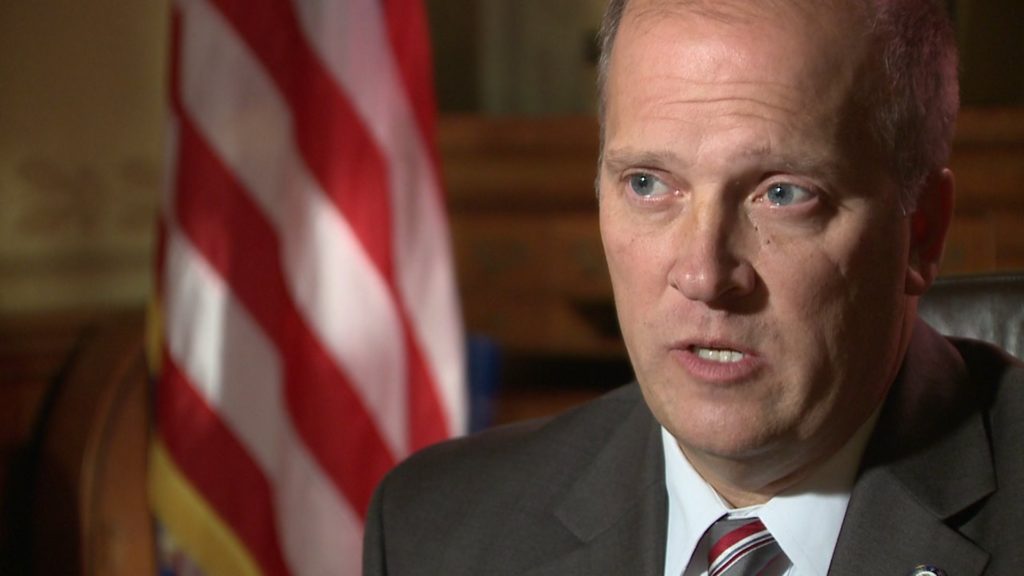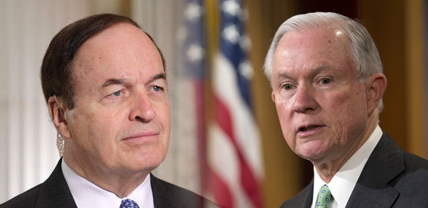Ballot error costs Alabama over $450K

Nearly 3 million of Alabama’s November general election ballots had to be reprinted after an error was discovered back in September. Just weeks before voters hit the polls, Alabama’s Secretary of State John Merrill‘s office was notified Monday that an omission was discovered regarding Statewide Amendment 2 — the first two paragraphs of the amendment were left off the state’s absentee ballots. On Friday, Merrill’s office finally announced the price-tag of the error: $459,690.80. The original ballot left off language intended to prevent lawmakers from diverting money generated by Alabama’s state parks for other government purposes. The amendment also allowed the state park system to hire more private entities to operate hotels and amenities within the parks. The amendment was approved last month. Merrill sent a letter to the state comptroller requesting that all costs associated with this printing be covered by the State of Alabama to place no additional, undue burden on the counties. The employee that was assigned this task no longer works for the Secretary of State’s Office
Donald Trump urging GOP to talk up Jeff Sessions ‘strong’ civil rights record

Donald Trump’s transition team is encouraging GOP Senators to talk up Alabama Sen. Jeff Sessions “strong civil rights record” and Justice Department experience during his confirmation hearings next year. The talking points, obtained by Politico, mention Sessions’ large role in Trump’s campaign and that the longtime Senator “is known for his deep respect and adherence to the rule of law, the cornerstone of American democracy.” The memo also highlights that Sessions filed “a host of desegregation lawsuits” during his time as a U.S. Attorney in Alabama, voted in favor of the 30-year extension of the Civil Rights Act, voted to confirm former Attorney General Eric Holder and his efforts to award the Congressional Gold Medal to Rosa Parks. One of the marks on Sessions’ record is his failed confirmation to a federal judgeship due to allegations of racist comments, but the memo includes a talking point that individuals who voted against Sessions’ confirmation in 1986 “ultimately regretted it.” The memo includes a quote late Sen. Arlen Specter, who said his “vote against candidate Sessions for the federal court was a mistake because I have since found that Sen. Sessions is egalitarian.” The memo also includes talking points on other Trump appointees, such as former Goldman Sachs executive Steven Mnuchin, who the administration emphasizes is a “world-class financier.” The talking points also highlight his Secretary of Commerce pick Wilbur Ross’ “extraordinary business career,” Secretary of Transportation pick Elaine Chao as “one of the most successful Cabinet officials in American history,” and Secretary of Health and Human Services pick Tom Price as a “renowned physician” and “tireless problem solver.”
Don’t ignore Jeff Sessions’ good work for black communities, Salon article warns

Alabama Republican Sen. Jeff Sessions may have taken some questionable stances on race in the past, but boiling down his career to those instances is selling him short according to an article published in Salon. Back in 2001, Sessions helped an impoverished, predominantly black Lowndes County, Alabama, by directing Environmental Protection Agency funds to the area to install new septic tanks. The area was home to 37 families facing arrest or eviction due to health regulation violations, and the $12,000 cost of installing a new septic system was well beyond the reach of the residents, whose average income is around $20,000 a year. Lowndes County holds 43 miles of the 54-mile 1965 voting rights march from Selma to Montgomery, and despite dozens of black leaders marching through the area annually, the area had to turn to Sessions for help. Sessions also moved to bring jobs to the area by approving $4 million in grants for secondary auto suppliers to set up shop after Hyundai Corp. opened a $1 billion manufacturing plant just 6 miles from the Lowndes County border. The longtime Senator also hosted a Capitol Hill meeting with corporate and policy representatives that resulted in Microsoft donating more than $65,000 worth of software to install on PCs in computer centers built for the county’s low-income residents.
House passes defense spending bill with Alabama delegation support

On Friday, the annual defense policy bill overwhelmingly passed the U.S. House of Representatives by a vote of 375 to 34. It now moves to the U.S. Senate for consideration next week. The 2017 National Defense Authorization Act (NDAA), funds the Pentagon and related military and intelligence operations through the next fiscal year. Specifically, the 2017 NDAA: Contains $619 billion total for national defense Provides $5.8 billion in supplemental funding for operations in Iraq, Afghanistan, and Europe Supplies an additional $3.2 billion for Readiness Stabilization Funding in an effort to stop additional reductions of the military Includes critical funding for Army helicopters $882 million for 52 AH-64 Apache helicopters $755 million for 36 new UH-60M multi-use Black Hawks for the Army and National Guard $126 million for the Improved Turbine Engine Program – a program essential to the development of a next generation engine for Blackhawk and Apache helicopter platforms Supports the Littoral Combat Ship program (LCS) by providing $1.1 million for two new Littoral Combat Ship Provides a 2.1% pay raise for our troops Maintains the current Basic Allowance for Housing (BAH), including for dual military families Improves access to health care for our troops and their families Prohibits the transfer of detainees at Guantanamo Bay to the United States, prohibits closure of the facility, and prohibits the transfer of the naval base to Cuba Provides the resources to combat Islamic extremists and to assist foreign security forces, such as the Kurds and Sunnis, to fight ISIS Supports our European allies to counter Russian aggression and funds the Israeli Cooperative Missile Defense programs Delivers improved technology to the warfighter faster While most chamber Democrats backed the legislation, despite the $619 billion price tag coming $3.2 billion dollars over White House requests, Alabama 7th District U.S. Rep. Terri Sewell chose not to vote. Here’s how the delegation voted and what they had to say about the bill: Alabama 1st District U.S. Rep. Bradley Byrne: This NDAA stops the drawdown of the military and authorizes critical funding for the operation and maintenance of our military. The bill authorizes important funding for training, helps rebuild outdated infrastructure, and ensures our military men and women have the munitions they need for ongoing operations. Alabama 2nd District U.S. Rep. Martha Roby: The Fiscal Year 2017 NDAA authorizes funding for the Department of Defense so that our service men and women have the tools and resources necessary to do their jobs. I’m pleased that the House took this critical step to support our troops and keep Americans safe. I look forward to working with the Trump Administration early next year to provide additional resources to fully fund unmet procurement needs, ensuring that our military – from the Generals making strategic decisions at the Pentagon to the warfighter on the front lines – have all that they need to defend our nation. Alabama 3rd District U.S. Rep. Mike Rogers: I am pleased the NDAA passed the House today with my strong support. This is a critical piece of legislation that helps take care of our brave men and women in uniform. This bill will strengthen our military, provide for vital installations like the Anniston Army Depot and authorize the funding needed to keep America safe. It will also give our service members the pay raise they deserve that they have not gotten in the past four years. Alabama 4th District U.S. Rep. Robert Aderholt: No comment made at this time. Alabama 5th District U.S. Rep. Mo Brooks: In recent years, budget cuts have slashed vital funding for training and equipment, creating a readiness crisis. The FY17 NDAA protects programs critical to ensuring our warfighters have the training and weaponry needed to protect America. Specifically, the legislation increases ground and aviation training and replenishes depleted munitions inventories. In addition, the FY17 NDAA fully fund’s Israel’s missile defense requirements and rejects cuts to TRICARE, Housing Allowances, and Commissary benefits for service members and their families. The FY17 NDAA also includes the largest pay raise for our troops in six years. Alabama 6th District U.S. Rep. Gary Palmer: Alabama 7th District U.S. Rep. Terri Sewell:
House passes $611 billion policy defense bill by wide margin

The Republican-led House on Friday overwhelmingly backed a $611 billion defense policy bill that rejects a number of President Barack Obama’s key proposals for managing the nation’s vast military enterprise. Lawmakers passed the legislative package, 375-34. The bill now goes to the Senate where a vote is expected early next week. The bill, crafted after weeks of talks between House and Senate negotiators, prohibits Obama from following through on his longstanding campaign pledge to close the prison at Guantanamo Bay, Cuba. The bill also bars the Pentagon from reducing the number of military bases even though senior U.S. defense officials said there is excess capacity, and it awards U.S. troops their largest pay raise in six years. Obama had recommended a smaller pay increase. The bill would prevent the Pentagon from forcing thousands of California National Guard troops to repay enlistment bonuses and benefits they received a decade after they signed up to serve in Iraq and Afghanistan. Soldiers would have to return a bonus only if a “preponderance of the evidence” shows they knew they weren’t eligible to receive the money. Even at $611 billion, the Republican chairman of the House Armed Services Committee lamented that more money is needed in the defense budget to restock the U.S. arsenal worn down by 15 years of conflict. Rep. Mac Thornberry of Texas said he is hopeful President-elect Donald Trump, who pledged during the campaign to spend more on the military, will ask Congress early next year to boost fiscal year 2017 military spending even further. During his 2008 bid for president, Obama pledged to close the detention facility at Guantanamo, which he called a recruiting tool for extremist groups. But Republicans and a number of Democrats repeatedly thwarted his goal over the ensuing years, arguing the prison was badly needed for housing suspected terrorists. The ban on closing the prison also includes a prohibition on moving Guantanamo detainees to secure facilities in the U.S. Trump has not only pledged to keep Guantanamo open, he said during the campaign that he wants to “load it up with some bad dudes.” The defense legislation also authorizes a 2.1 percent pay raise for the troops – a half-percentage point higher than the Pentagon requested in its budget presentation. The Republican chairman of the Armed Services Committee, Sen. John McCain of Arizona, said it’s the largest military pay increase since 2010. The White House Office of Management and Budget objected to the larger raise, telling lawmakers earlier this year that the lower amount would save $336 million this fiscal year and $2.2 billion through 2021. A bigger increase, the budget office said, would upset the careful balance between competitive pay and acquiring cutting-edge equipment and training. The bill blocks the Pentagon’s planned reductions in the number of active-duty troops by prohibiting the Army from falling below 476,000 active-duty soldiers – 16,000 more than Obama’s defense budget had proposed. The bill also adds 7,000 service members to the Air Force and Marine Corps. House and Senate negotiators dropped a House plan to shift $18 billion from the emergency wartime spending account to pay for additional weapons and combat gear the Pentagon didn’t include in its budget request. They elected instead to boost the wartime account, which isn’t constrained by mandatory budget limits, by $3.2 billion to help halt a decline in the military’s ability to respond to global threats. The decision may have been motivated by Trump’s assurances that he would increase defense spending dramatically, allowing the armed forces to add tens of thousands more troops and acquire new weapons. The defense bill contains $5.8 billion in additional war-related funding Obama requested last month primarily for operations in Iraq, Syria and Afghanistan. That includes $2.5 billion to maintain elevated U.S. troop levels of 8,400 in Afghanistan as announced over the summer. About $383 million would pay for air strikes against Islamic State militants. Lawmakers avoided wading more deeply into social policy issues by stripping two contentious provisions from the bill. One, opposed by Democrats, would have allowed federal contractors to discriminate against workers on the basis of sexual or gender orientation. Another, opposed by Republicans, would have required for the first time in U.S. history that young women sign up for a potential military draft. The Obama administration on Thursday declared its support for requiring women to register for the military draft, a symbolic but significant shift that reflects the U.S. military’s evolution from a male-dominated force to one seeking to incorporate women at all levels. Republished with permission of The Associated Press.
Lawsuits seek to block or halt Wisconsin, Michigan recounts

Supporters of Republican Donald Trump filed a federal lawsuit trying to halt Wisconsin’s ongoing presidential recount, and Michigan’s attorney general on Friday sued to stop a recount from happening in his state. The Wisconsin lawsuit and motion for a temporary restraining order was filed late Thursday in U.S. District Court in Madison by the Great America PAC, the Stop Hillary PAC and a Wisconsin voter, Ronald R. Johnson. The legal filings contend that the recount is unconstitutional because it doesn’t satisfy equal protection requirements under the law and may not get done by the Dec. 13 federal deadline to certify the vote, putting Wisconsin’s electoral votes in jeopardy. No court hearings had been scheduled as of Friday morning. The Wisconsin Department of Justice was reviewing the lawsuit, said Johnny Koremenos, spokesman for Attorney General Brad Schimel. Green Party candidate Jill Stein, who requested both recounts and a third in Pennsylvania, has suggested that Trump and his backers would try to delay the recounts to make them hard or impossible to complete by the Dec. 13 deadline for states to certify their election results or have their electoral votes be decided by Congress, which is controlled by Republicans. A spokeswoman for Stein’s campaign didn’t immediately respond to a message seeking comment Friday. With workers in Wisconsin busy re-counting votes for a second day, Michigan’s state elections board was meeting about the Trump campaign’s request to deny Stein’s recount request. In his request to the Michigan Supreme Court to block the hand recount, Attorney General Bill Schuette, like the Trump campaign, argued that Stein cannot seek the “frivolous” recount because she was not “aggrieved” to the point at which a potential miscounting of votes could have cost her the election. She garnered 1 percent of the vote in Michigan. The earliest a Michigan recount could start would be next week. In Pennsylvania, a hearing is scheduled for Monday on Stein’s push to secure a court-ordered statewide recount there. Elections officials in all three states have expressed confidence in their results. President-elect Trump won all three states by narrow margins. Wisconsin Gov. Scott Walker echoed that sentiment Friday, telling reporters that he doesn’t expect his state’s recount to significantly change the results. “Anytime there’s a canvass or a recount there’s slight adjustments, but I don’t think you’re going to see a significant adjustment,” the Republican governor said. Walker also said he’s open to changing the state’s election laws to prevent minor candidates from being allowed to request recounts. Stein finished a distant fourth in Wisconsin with a little more than 1 percent of the vote. Trump won Wisconsin by about 22,000 votes, or less than 1 percentage point, over Clinton. Stein requested the recount which began on Thursday and had to be done by Dec. 13. There is a “realistic risk” the recount may not be done in time of the deadline and the “chaotic rushing necessary” to meet the deadline “creates an imminent unreasonable risk of error that can lead to votes being erroneously counted, disregarded, or diluted,” the motion for a temporary restraining order in Wisconsin contends. Michigan’s elections board on Friday was considering Trump’s request to block a hand recount of all 4.8 million ballots cast in the state. He defeated Clinton there by about 10,700 votes. In their filing to the election’s board, Trump’s lawyers argued that Stein, a “bottom-dwelling candidate,” shouldn’t be allowed to force an expensive and time-consuming recount. They also said in their objection that Stein waited until the last minute to file her recount petition Wednesday, making it impossible to finish by the Dec. 13 deadline. Stein countered Thursday that Trump’s “cynical efforts to delay the recount and create unnecessary costs for taxpayers are shameful and outrageous.” The first reporting of recount results was expected Friday in Wisconsin. Recounts were not expected to flip nearly enough votes to change the outcome in any of the states. Stein has argued, without evidence, that irregularities in the votes in all three states suggest that there could have been tampering with the vote, perhaps through a well-coordinated, highly complex cyberattack. Republished with permission of The Associated Press.
Donald Trump to return to Alabama for huge ‘thank you’ rally

Plans are in the works to bring President-elect Donald Trump back to the Yellowhammer State this month during this “Thank You Tour.” Trump kicked off his tour Thursday night with a rally in Cincinnati, Ohio, the battleground state where he won a critical election-night victory. “We have so many problems to fix in this country but if we must set aside our differences. We’re a very divided nation, but we are not going to be divided for long, I have always brought people together, I know you find that hard to believe,” Trump said in Cincinnati. “We are going to bring our country back together, and we will get the job done properly. America will start winning again, big league, we will win again.” While an Alabama date has yet to be made public, a stop in Mobile seems inevitable. “It’s not just going to go to swing states,” Jennifer Jacobs of Bloomberg Politics said earlier this week on MSNBC. “We know the schedule, it was given to us for planning purposes but hasn’t been released publicly yet. One place they’re going to go is Mobile, Alabama, which is a place that is really special for Trump and his campaign. They attracted 30,000 people there last summer. It was a symbolic moment for them when they really realized they had a movement going on and could take this somewhere.” Alabama Republican Party Chairwoman Terry Lathan confirmed Thursday that efforts are in fact in place to bring Trump back to the Port City for a victory-lap.
How a Trump Administration could shape the internet

Under a President Donald Trump, cable and phone companies could gain new power to influence what you do and what you watch online – not to mention how much privacy you have while you’re at it. Republicans who generally oppose regulation seem likely to take charge at the Federal Communications Commission, the government’s primary telecom regulator. That alone could mean the end of rules designed to protect privacy and individual choice on the internet. Those rules were enacted over the past several years under the Obama administration. Under Trump, “the FCC will be a lot more focused on getting government out of the way,” said Berin Szoka, president of TechFreedom, a think tank that opposes much regulation. Phone and cable companies routinely protest that regulation lead them to invest less in their networks, harming their ability to deliver better service. Deregulation raises concerns for consumer advocates – not just in terms of rolling back rules, but also potentially allowing more huge mergers, which several analysts expect despite Trump’s campaign swipes at big media . Under the coming administration, a laxer FCC could result in even higher cable and internet bills, worse customer service and fewer choices, says Harold Feld, senior vice president at public-interest group Public Knowledge. Of course, it’s difficult to know exactly what to expect, given Trump’s aversion to policy specifics and frequent reversals during the campaign. Representatives for Trump’s transition team didn’t reply to requests for comment. NET NEUTRALITY One possible first target: Rules that aim to protect individual choice and innovation on the internet. Suppose that firing up Netflix or YouTube led only to delays and stuttering playback that still counted against the limited data in your broadband plan – a sharp contrast to the speedy video app offered by your phone or cable company, which incurs no data costs. That’s one scenario the Obama-era FCC sought to ward off with “net neutrality” regulation that requires internet providers to treat all data traffic equally on their networks, as the internet has historically worked. Without net neutrality, your access to many popular services might be degraded by your local cable or phone company. Startups could have trouble delivering new video or virtual-reality services. Companies that provide internet service could find it easier to push their own options instead. The net-neutrality rules are popular, so they’re not likely to completely disappear under Trump. But the FCC might well be more restrained in enforcing them. Internet providers could use subtle tactics and behind-the-scenes maneuvers to change people’s behavior and make more money, suggested Matt Wood, policy director at the public-interest group Free Press. Consumers might eventually find that they have fewer services to choose from online, or that using them is more difficult or expensive. PRIVACY, OPENNESS AND INTERNET ACCESS If the Trump FCC whacks away at existing regulations, cable and phone companies are going to find it a lot easier to mine your browsing habits and other information for data they can use to target ads at you. Verizon, for example, is eager to build a digital-ad business to compete with Google and Facebook. But recent privacy rules force them to ask customers for permission before using their data. Those companies have made no secret of their dislike for this requirement. The FCC’s effort to “open up” the cable box in ways designed to give you more options for hooking up TVs and streaming gadgets to cable service is likely dead. Its effort to subsidize internet for low-income people may face budget cuts, although cable companies do offer separate cheap internet options for low-income people. MERGERS During the campaign, Trump spoke out several times against media giants, in particular when he said he’d reject AT&T’s $85.4 billion acquisition of Time Warner and that he might look at breaking up Comcast and NBCUniversal. But some analysts think that with Republicans in charge of agencies like the FCC and the Department of Justice, mergers are more likely to sail through. The new administration might make it easier for AT&T to buy Time Warner and reserve some of the conglomerate’s TV programs and films for its own subscribers, said MoffettNathanson analyst Craig Moffett. Analysts had expected regulators to impose consumer-protection conditions on the merger if it’s approved. But under the Trump administration, AT&T might remain free to hold back new episodes of “Game of Thrones” for a few weeks – or maybe even everything on HBO – unless you’re an AT&T cellphone or home internet customer, he said. If so, Verizon or Charter might go shopping for their own entertainment conglomerates to compete for customers. That could create a world in which the TV you watch would be heavily influenced by the company that supplies your internet service. AND A BIG WILDCARD But Trump’s FCC could also do something unexpected. Public Knowledge’s Feld, for instance, worries that the administration could harness the FCC’s existing tools to police media companies and limit freedom of the press. For instance, the FCC could threaten to condition renewal of broadcast licenses on how news programs cover the administration, said Floyd Abrams, a longtime First Amendment lawyer. The agency could threaten to go after a company like Comcast, which owns NBC and MSNBC, for a net neutrality violation on its cable side to try to pressure coverage. “The FCC has so much authority over policies which have an enormous and direct impact financially” on the industry, Abrams said. “Even an informal nudge in one direction or another, informal pressure of one sort or another, can have major impact.” Of course, such action could bring Trump into conflict with the GOP Congress, which generally favors limits on FCC power. But there’s no way to know how that would play out at this stage. Republished with permission of The Associated Press.
With friends like these: Richard Shelby ran 1986 ad suggesting Jeff Sessions called KKK ‘good ole boys’

Thirty years ago, a campaign ad suggested Jeff Sessions saw the Ku Klux Klan as a bunch of “good ole boys.” But, as John Sharp of AL.com notes, the attacks against the then-U.S. Attorney seeking a spot on the federal bench, wasn’t from Democrats like Massachusetts Sen. Ted Kennedy who was fighting his nomination. The 1986 ad came from Congressman Richard Shelby – who would later become one of Sessions’ colleagues and a longtime friend in the Senate. William Stewart, professor emeritus of political sciences at the University of Alabama, says the relationship between Shelby and Sessions “definitely changed.” Shelby, who narrowly won that 1986 election for his first term in the U.S. Senate, will likely support Sessions as he faces the Senate Judiciary Committee for a confirmation hearing on his nomination as Donald Trump‘s Attorney General – the same committee that denied Sessions’ appointment as a federal judge 30 years ago. In a statement, Shelby called Sessions “a dear friend” of more than 20 years and “a man of great integrity.” “I was an enthusiastic supporter of Jeff in his bid to join me in the U.S. Senate,” Shelby said. “We have been rock-solid partners in Congress ever since.” Much has changed over the past three decades. Sharp writes: “The linkage of Sessions to the Klan by Shelby occurred days before the Nov. 3, 1986, election. Shelby, then a Democrat, won his first Senate term that year by defeating Republican Sen. Jeremiah Denton by a razor-thin margin of 50.3 percent to 49.7 percent. “Denton, at the time, had backed Sessions’ nomination to the federal judiciary. The Judiciary Committee hearings proved to be a disaster at the time that battered Sessions’ reputation after his nomination was rejected amid allegations that he once called a black staffer “a boy,” that he considered the NAACP as ‘un-American’ and used criminal prosecutions to thwart voting rights for blacks. “In addition, a colleague testified that Sessions once joked that he felt the Ku Klux Klan was okay until he learned they smoked marijuana.” A Tuscaloosa Democrat at the time, Shelby used the comments to blast Denton in a campaign ad, angering Sessions, who told the Mobile Register the claims were “slanderous” and “absolutely false.” “I expect the false ad to be withdrawn at once,” Sessions said in a Nov. 3, 1986, article. He demanded an apology from Shelby. Shelby – a Republican since 1994 – now takes a decidedly different view of his one-time opponent: “Jeff Sessions’ record of standing up for all Americans and his high moral character indisputably prove that the 30-year-old claims of the past are nothing more than baseless political accusations.”
John Kerry: US, Russia studying new ideas to stop Syria fighting

The United States and Russia are studying new ways to break a months-long diplomatic deadlock over how to stop the fighting in the Syrian city of Aleppo, U.S. Secretary of State John Kerry said Friday. He said the “ideas” will be tested in follow-up discussions between American and Russian diplomats next week. While Kerry didn’t elaborate on the substance of the fresh approaches being worked on with Russia, he stressed that the U.S. and Russia both see the situation as urgent and aren’t waiting for Donald Trump‘s presidency to begin on Jan. 20. But given the repeated failures of the former Cold War foes to halt Syria’s 5 ½-year civil war, it is unclear how much hope the new effort holds. “We have exchanged a set of ideas, which there will be a meeting on early next week in Geneva, and we have to wait and see whether those ideas have any legs to them,” Kerry said after meeting Russian Foreign Minister Sergey Lavrov in Rome. “I will say that both sides understand the importance of trying to continue the diplomacy and trying to see if something can be done. Nobody is waiting for the next administration. We both feel there is urgency.” Kerry said he will gauge progress with Lavrov when they meet again on the sidelines of a European security conference in Hamburg, Germany, on Wednesday. While the talks were going on, Syria showed off its recent gains in Aleppo, once the country’s largest city and commercial center. State media reported Friday from areas captured this week in a Russian-backed ground offensive, airing reports of roads being restored, debris removed and civilians resettled. The U.N. aid agency said an estimated 31,500 people have been displaced as a result of the recent fighting, which takes Syrian President Bashar Assad’s government closer to capturing the whole city and completing what would be perhaps a devastating blow to U.S.-backed rebel forces. The war has killed as many as half a million people since 2011, contributed to Europe’s worst refugee crisis since World War II and allowed the Islamic State group to emerge as a global terror threat. Friday’s diplomatic discussions took place in a hotel several stories above an Italian-hosted conference on the Mediterranean region, and Russia’s Lavrov emphasized that his country won’t allow Syria to follow the example of lawless Libya after NATO’s 2011 intervention that helped topple dictator Moammar Gadhafi. That country now is experiencing perhaps its worst violence in two years as rival militias and extremist groups such as IS continue to vie for power. While Washington has accused Moscow of war crimes and crimes against humanity in Syria, Lavrov blamed both the U.S. and United Nations for the current situation. He lamented that the U.S. has been unable to fulfill its commitment under several past cease-fire plans to separate the so-called “moderate” opposition groups from the al-Qaida-linked fighters that Russia says it is targeting. And he questioned why the U.N. isn’t restarting peace talks or rushing aid to areas of Syria in need, something the global body has been extremely reticent to do since a September convoy was hit by an airstrike. The U.S. has blamed Russia for that attack, a charge Moscow denies. “The time is ripe for compromise,” Lavrov said. Both diplomats met Friday with the U.N.’s envoy for Syria, Staffan de Mistura. As journalists were ushered into his meeting with Kerry, reporters could hear the peace mediator telling the U.S. secretary of state, “Anything but stalemate.” Republished with permission of The Associated Press.
White House announces support for women in military draft

The Obama administration has declared its support for requiring women to register for the military draft, a symbolic but significant shift that reflects the U.S. military’s evolution from a male-dominated force to one seeking to incorporate women at all levels. President Barack Obama has been considering whether to adopt the position since last December, when Defense Secretary Ash Carter ordered the military to open all jobs to women, including the most arduous combat posts. Ned Price, a spokesman for the White House’s National Security Council, said Thursday that Obama believes women have “proven their mettle,” including in Afghanistan and Iraq. “As old barriers for military service are being removed, the administration supports – as a logical next step – women registering for the Selective Service,” Price said, using the formal name for the military draft. The White House emphasized that the administration remains committed to an all-volunteer military – meaning women, like men, wouldn’t be forced to serve unless there were a national emergency like a major world war. Changing the policy would require an act of Congress, and there are no signs that lawmakers plan to move swiftly to alter the law. Obama, who will leave office in less than two months, has less leverage over Congress and the broader Washington agenda than he did earlier in his presidency. Like his embrace of gay marriage in 2012, Obama’s announcement appeared aimed more at influencing the public debate about women in the military in the coming years than forcing an immediate policy change. The Defense Department echoed Obama’s position, first reported by USA Today. Pentagon press secretary Peter Cook said that Carter believes the inclusion of women throughout the military’s echelons has strengthened the military’s might. “He thinks it makes sense for women to register for Selective Service, just as men must,” Cook said. But a $611 defense policy bill now up for a vote in the House stripped out language that would have required women to register for the draft. Late last year, the Pentagon ordered all military jobs opened to women, including about 220,000 jobs previously restricted to men, including in special operations forces. Carter and other military leaders insisted that the military wouldn’t lower the physical standards for those jobs to enable more women to qualify. Integrating women has not been fast or easy. Earlier this year the top Army and Marine Corps generals told senators it would take up to three years to fully integrate women into all combat jobs. The military services have started recruiting women for those jobs and making necessary changes to bathrooms and other facilities. But some of the services, such as the Marine Corps, have predicted or experienced challenges identifying large numbers of candidates who want to serve in combat and meet the physical requirements. Under current law, women can volunteer to serve in the military, but aren’t required to register for the draft. All adult men must register within 30 days of their 18th birthday, and risk losing eligibility for student aid, job training and government jobs if they fail to comply. Signing up for the draft entails registering with the U.S. Selective Service, an independent agency aimed at ensuring a fair distribution of military duties if the president and Congress had to enact a draft. The U.S. hasn’t had a military draft since 1973, during the Vietnam War era. The new posture from the Obama administration came at an unusual time, just two days after House and Senate negotiators agreed to strip a provision from the annual defense policy bill that would have required young women to register. The measure had roiled social conservatives, who decried it as another step toward the blurring of gender lines akin to allowing transgender people to use public lavatories and locker rooms. Rep. Pete Sessions, R-Texas, spoke for a number of Republicans when he described the provision as “coercing America’s daughters” into draft registration. But proponents of including women in the draft pool viewed the requirement as a sensible step toward gender equality. They pointed to the Pentagon’s decision last year to open all front-line combat jobs to women as removing any justification for gender restrictions on registration. Republished with permission of The Associated Press.
Donald Trump to nominate retired Gen. James Mattis to lead Pentagon

President-elect Donald Trump says he will nominate retired Gen. James Mattis to be his defense secretary. Mattis, 66, is a Marine Corps general who retired in 2013 after serving as the commander of the U.S. Central Command. Trump made the announcement Thursday night at a post-election victory rally in Cincinnati. Mattis’ selection raises questions about increased military influence in a job designed to insure civilian control of the armed forces. The concerns revolve around whether a recently retired service member would rely more on military solutions to international problems, rather than take a broader, more diplomatic approach. For Mattis to be confirmed, Congress would first have to approve legislation bypassing a law that bars retired military officers from becoming defense secretary within seven years of leaving active duty. Mattis has a reputation as a battle-hardened, tough-talking Marine who was entrusted with some of the most challenging commands in the U.S. military. In a tweet last month, Trump referred to Mattis by his nickname “Mad Dog” and described him as “A true General’s General!” Mattis would be only the second retired general to serve as defense secretary, the first being George C. Marshall in 1950-51 during the Korean War. Marshall was a much different figure, having previously served as U.S. secretary of state and playing a key role in creating closer ties with Western Europe after World War II. The only previous exception to the law requiring a gap after military service was for Marshall. Although his record in combat and his credentials as a senior commander are widely admired, Mattis has little experience in the diplomatic aspects of the job of secretary of defense. Richard Fontaine, president of the Center for a New American Security, described Mattis as a defense intellectual and as a military leader who distinguished himself in combat. “He knows the Middle East, South Asia, NATO and other areas and has evinced both a nuanced approach to the wars we’re in and an appreciation for the importance of allies,” Fontaine said in an email exchange. “If he were to get the nomination, I suspect that he could attract a number of very talented people to work with him.” But Mattis hasn’t been immune to controversy. He was criticized for remarking in 2005 that he enjoyed shooting people. He also drew more recent scrutiny for his involvement with the embattled biotech company Theranos, where he serves on the board. Born in Pullman, Washington, Mattis enlisted in the Marine Corps in 1969, later earning a history degree from Central Washington University. He was commissioned as an officer in 1972. As a lieutenant colonel, Mattis led an assault battalion into Kuwait during the first U.S. war with Iraq in 1991. As head of the Central Command from 2010 until his retirement in 2013, he was in charge of both the wars in Iraq and Afghanistan. In the aftermath of the 9/11 attacks, Mattis commanded the Marines who launched an early amphibious assault into Afghanistan and established a U.S. foothold in the Taliban heartland. As the first wave of Marines moved toward Kandahar, Mattis declared that, “The Marines have landed, and now we own a piece of Afghanistan.” Two years later, he helped lead the invasion into Iraq in 2003 as the two-star commander of the 1st Marine Division. In 2005, he raised eyebrows when he told a San Diego forum that it was “fun to shoot some people.” According to a recording of his remarks, Mattis said, “Actually, it’s a lot of fun to fight. You know, it’s a hell of a hoot. … It’s fun to shoot some people. I’ll be right up front with you, I like brawling.” He added, “You go into Afghanistan, you got guys who slap women around for five years because they didn’t wear a veil,” Mattis continued. “You know, guys like that ain’t got no manhood left anyway. So it’s a hell of a lot of fun to shoot them.” Mattis was counseled to choose his words more carefully. A year later, Mattis came under scrutiny during one of the more high-profile criminal investigations of the Iraq war, the shooting deaths of 24 Iraqis by Marines. The Iraqis, who included unarmed women and children, were killed by Marines in the town of Haditha after one of their comrades was killed by a roadside bomb. Eight Marines were charged in connection with the killings – four enlisted men were charged with unpremeditated murder and four officers who weren’t there at the time were accused of failures in investigating and reporting the deaths. As commander of the accused Marines’ parent unit, the 1st Marine Expeditionary Force, Mattis ultimately dismissed charges against most of the Marines. As a top Marine general, Mattis pushed for the military to adopt blood-testing technology developed by Theranos. As reported by The Washington Post, Mattis first met Theranos founder Elizabeth A. Holmes in 2011. A year later, according to emails obtained by The Post, Holmes used her connection to Mattis to pressure him to intervene after a Pentagon official raised concerns that the company was distributing its technology without approval by the Food and Drug Administration. The emails show within hours after Holmes asked Mattis for help, he forwarded her email to other military officials asking them,”how do we overcome this new obstacle.” Mattis joined the Theranos board the same year he retired. The company, which raised hundreds of millions of dollars on the promise of breakthrough blood-testing technology, was forced to invalidate two years of patients’ test results after the reliability of its proprietary blood-testing machinery was questioned by internal and government whistleblowers and investigative reporting by The Wall Street Journal. Republished with permission of The Associated Press.


